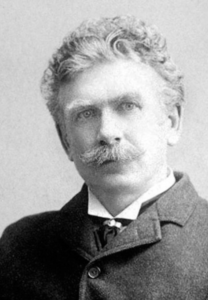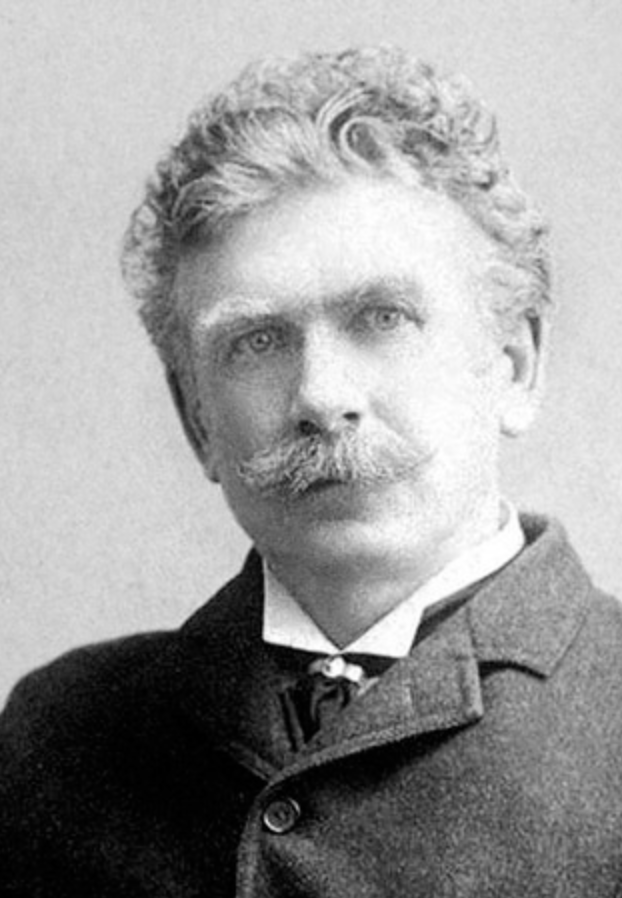COLUMN | By Bret Bradigan
The Ambrose Bierce Theory

Ambrose Bierce
Some years ago I was one of the adult helpers for the Ojai Valley Youth Foundation’s leadership program. The attendees, ages 12 to 15 or so, were selected because they were at risk of joining gangs, aggressive behavior, bad grades, dropping out of school. That they were called leaders was more aspirational than actual. Each week we got together for an hour-and-a-half of group games and activities, as well as honest talks. At program’s end we spent a weekend camping, a trip planned in every detail by the kids. Our facilitator was Jim Bailey, the director of Rock Tree Sky school, who is the kind of teacher we all wish we had at the toughest moments of our school days. Those kids were transformed. It was transformative for the adults, too. I’d love to see that program resurrected.
Bailey’s first instruction on the first session was there was to be no teasing, no snarky comments or mean asides. “Zingers out,” he’d say. As the weeks progressed, he had to say “C’mon now, zingers out!” less and less. Ironic detachment began to be replaced by earnest effort and authentic talk. You wish that there was a legion of Jims to moderate social media, where the public sphere seems especially toxic; people feel free in their anonymity to say things they’d never say in person. It disconnects what people say from the consequences of those words. It’s the low simmer of nihilism; nothing matters, what’s the point, why bother?
It’s not new. What’s new is the astonishing and consequence-free ease of it. An earlier example is Ambrose Bierce, perhaps America’s most famous cynic. He was the pugnacious short-story writer and newspaperman who wrote “The Devil’s Dictionary.” Here’s sample entries to give you an idea:
Advice, n. The smallest current coin.
Blackguard, n. A man whose qualities, prepared for display like a box of berries in a market — the fine ones on top — have been opened on the wrong side. An inverted gentleman.
Litigation, n. A machine which you go into as a pig and come out of as a sausage.
In 1913, at the age of 71, Bierce was on a tour of his old Civil War battlefields when he decided to investigate firsthand the Mexican Revolution. He joined Pancho Villa’s army as an observer (more on that in a later column) and thereupon disappeared. Why this biting satirist and cynic felt compelled to embed with one of history’s most enigmatic leaders remains unexplained. But one theory holds that if you scratch a cynic, you will find underneath a bruised idealist, someone who never gives up seeking despite continual disappointments: even an old man who survived a tragic war, bad marriages, greedy plutocrats and grifting politicians. You wonder if Bierce wanted nothing so much in this world as to be proven wrong.
This issue of the OQ is dedicated to those like Bierce, and we hold up the lamp of his memory to these pages; it is a haven for the searchers and seekers. Look at Kit Stolz’ account of pixie tangerines; you’d be hard pressed to find a more optimistic group than farmers. Mark Lewis’ masterful piece colorfully connects Homer, Alaska and our humble home, wherein some of our residents sought to build a better way of living. Sami Zahringer’s hilarity about a dating service honors the truth that hope springs eternal. Scott Johnson’s skyscraper-building career has taken him all around the world, but he chose Ojai as his home. Between Richard Camp’s wine harvesting fun and Chuck Graham’s raptor rhapsody, there’s a bright line of connection between Ojai’s soil and sky. Reading Ilona Saari’s guide to Ojai gifts feels itself like a gift to us in the “Little Orange.”
What connects all of these pieces is the refreshing lack of cynicism or the bitter brew of snark that pervades the online world. Here we live on a human scale where we matter to each other. As we navigate our way through the emotional minefields of the holidays and beyond, please accept this issue in that spirit.


lovely